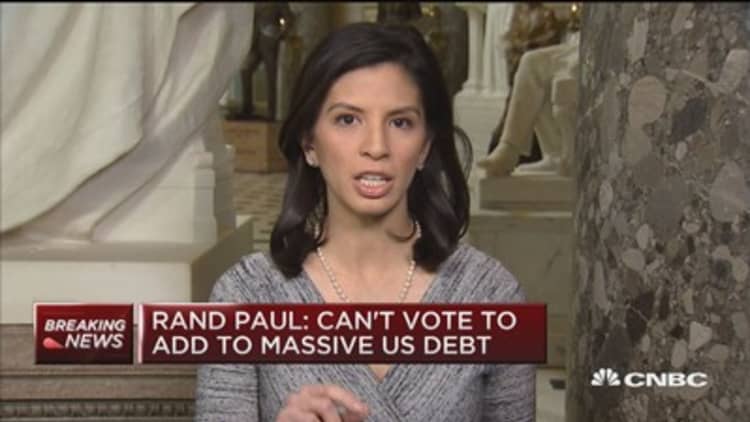
Sen. Rand Paul, R-Ky., said Tuesday that he "cannot in good conscience vote to add more to the already massive $20 trillion debt."
The lawmaker wrote in a post on Twitter that "I promised Kentucky to vote against reckless, deficit spending and I will do just that."
Paul's tweet didn't suggest he would oppose the GOP tax bill due to deficit concerns.
The lawmaker clarified in a follow up tweet that tax cuts "are never the problem."
Senators voted Thursday to approve a two-week spending bill that averted a government shutdown.
It is unclear how Paul's stance will affect negotiations to keep the government running beyond Dec. 22. The temporary spending bill that passed Thursday went through overwhelmingly, with 81 voting in support.
Paul has supported the Republican tax plan, a separate bill. Sen. Bob Corker, R-Tenn., opposed the tax bill over deficit concerns while other Republicans expressed concerns about paying for tax cuts.
The nonpartisan Joint Committee on Taxation estimates that the Senate's tax plan would add more than $1 trillion to the federal budget deficit over 10 years. Paul initially supported even deeper tax cuts than the GOP proposed.
The White House has said that increased economic growth will pay for the tax cuts.



